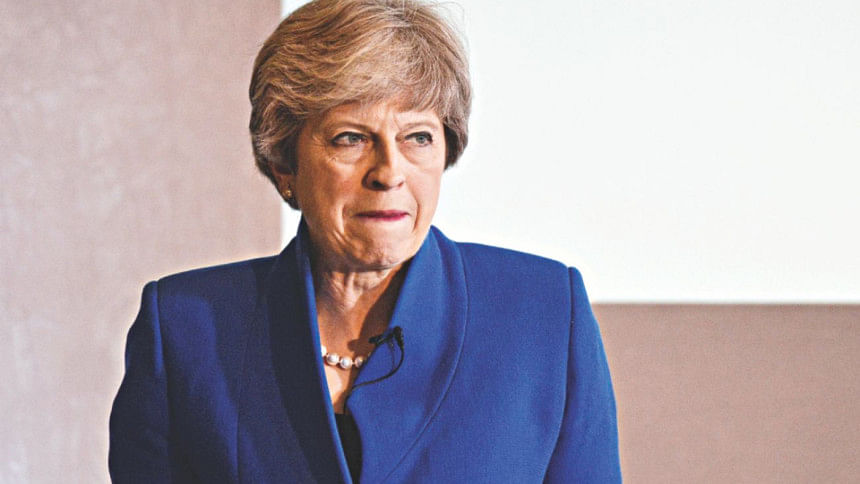Angry UK PM rejects EU draft

British Prime Minister Theresa May angrily rejected a draft divorce treaty unveiled by the EU on Wednesday, saying she would never allow the bloc to undermine her country's "constitutional integrity".
May lashed out at the proposal to keep British-ruled Northern Ireland in a customs union if there is no better solution to avoid a hard border with EU-member Ireland.
The European Union's chief Brexit negotiator Michel Barnier insisted that the plan was not designed to "provoke", and denied that it threatened the sovereignty of the UK.
The EU's draft withdrawal agreement spells out the details of a provisional deal sealed in December by May and European Commission chief Jean-Claude Juncker, which largely fudged the Irish question.
"The draft legal text will, if implemented, undermine the UK common market and threaten the constitutional integrity of the UK by creating a customs and regulatory border down the Irish Sea and no UK prime minister could ever agree to it," May told parliament.
May added that she will "be making it crystal clear to President Juncker and others that we would never" agree to Northern Ireland having different customs rules to the rest of the United Kingdom.
The 120-page EU draft agreement says that in the absence of another plan, "a common regulatory area comprising the Union and the United Kingdom in respect of Northern Ireland" would be set up.
This would involve a "an area without internal borders in which the free movement of goods is ensured and north-south cooperation protected," it says.
Barnier said it was merely a "fallback" in case Britain's two preferred options -- hi-tech frictionless border controls, or a solution linked to a future EU-UK trade deal -- both fell through.
Ireland and the EU have called for any Brexit agreement to avoid a hard border including customs checks, in order to protect the 1998 Good Friday agreement in Northern Ireland, which ended three decades of bloody sectarian violence.
Barnier meanwhile warned that negotiations on Britain's departure in March 2019 must accelerate in order to succeed.
Barnier on Tuesday said the bloc ruled out an "open-ended" phase mooted by Britain and wanted a "short" transition ending on December 31, 2020.

 For all latest news, follow The Daily Star's Google News channel.
For all latest news, follow The Daily Star's Google News channel. 



Comments